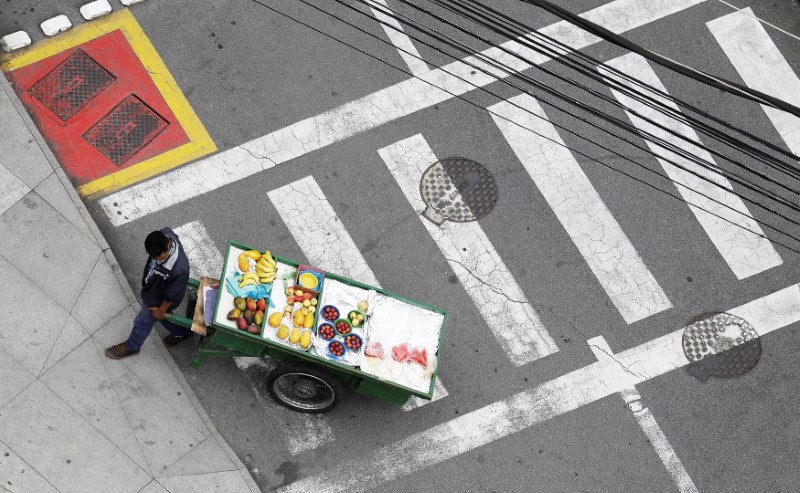By Jamie McGeever
BRASILIA (Reuters) - Economic activity in Brazil fell slightly in the three months to June, a central bank indicator showed on Monday, suggesting Latin America's largest economy may have slipped into recession.
The central bank's IBC-Br economic activity index, a leading indicator of gross domestic product (GDP), fell 0.13% in the second quarter, after a 0.68% drop in the three months to March.
A recession is typically defined as two consecutive quarters of negative economic growth. If the IBC-Br index is backed up by official GDP data this month, Brazil will have fallen into recession for the first time since a punishing 2015-16 downturn.
Brazil's economy has been blighted this year by high unemployment, weak industrial production, economic troubles in neighboring Argentina and a darkening outlook for global growth.
Brazil's GDP shrank by 0.2% in the first quarter and is only expected to expand by 0.8% this year, according to central bank, government, International Monetary Fund and consensus market forecasts. Second quarter figures will be released on Aug. 29.
"For now we keep our full 2019 estimate at 0.5%, with a slight upward bias," said Mauricio Oreng, senior strategist at Rabobank in Sao Paulo. "We are looking for a slight pickup in the second half of the year ... but what we can say for sure is that the economy remains anemic and sluggish."
Brazil's currency, the real (BRBY) fell nearly 1.5% in early Monday trading and the Bovespa stock index (BVSP) opened lower.
The central bank cut its benchmark interest rate by 50 basis points to a record low of 6.00% at the end of July. A weekly central bank survey of financial institutions on Monday showed that economists expect that to be slashed to 5.00% by the end of this year.
The central bank's IBC-Br economic activity index actually rose 0.30% in June from May, more than the 0.10% expected in a Reuters poll of economists but not enough to prevent the quarterly decline.
It was the first time this year that the index has risen two months in a row, suggesting the worst might be over. The central bank had estimated in the minutes of its last policy meeting that economic growth was most likely flat or slightly positive in the second quarter.
